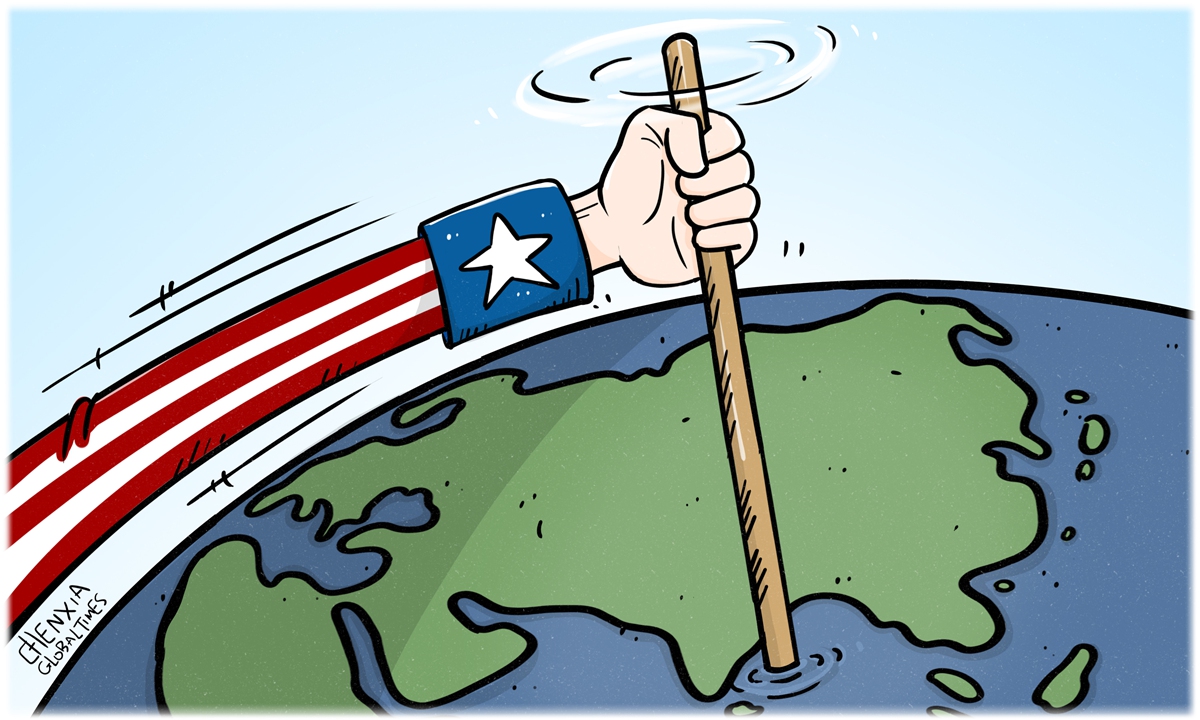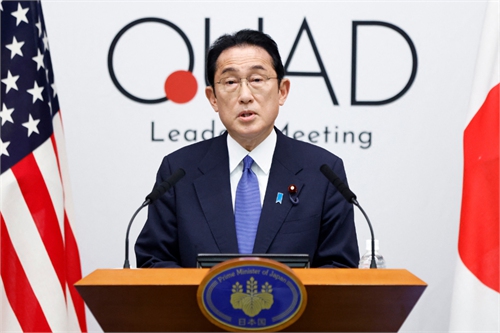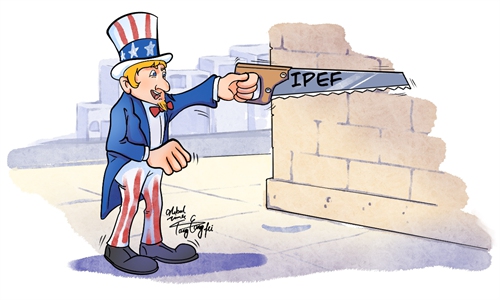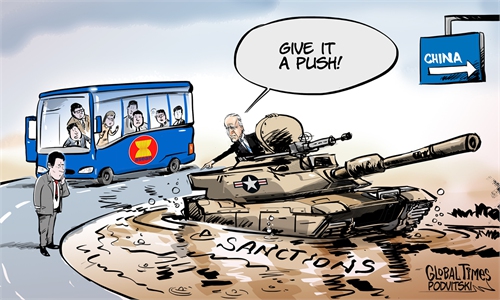
Illustration: Chen Xia/Global Times
With US' economy entering a perplexing period of stagflation in which the federal government could do little to tame across-the-board price rises and at the same time revitalize a sputtering economy, the capability of the superpower to pose its nose into other countries' affairs, or freely wield its club to suppress smaller nations that refuse to kowtow to Washington, is seriously weakened. And, this will help the world to build a fairer and more equitable international order.Ever since Barrack Obama's "pivot to Asia" campaign, China's leadership has rightly defined the trend of global geopolitical evolution that the world started to enter a critical phase of "great turbulence and tremendous changes." To prevent the US from muddying the peaceful waters of Asia, China promptly proposed the strategic viewpoint of the "Asian Community of Shared Future," which says that all Asian countries should cherish the hard-earned peace and yearn for rapid development in the region.
But politicians in Washington are not willing to witness Asian countries develop their economies in a tranquil environment, and they even loath the idea of Asian people one day enjoying a high living standard just like Americans. And, they are determined to do more harm to the region to disrupt economic integration of Asia.
The former Donald Trump administration was, characteristically, reckless and blunt. It launched an unprecedented tariffs war with China in its desperate attempt to block China's meteoric growth by imposing high punitive duties on $360 billion worth of imported Chinese goods. Beijing was forced to fight back, levying tit-for-tat tariffs on a wide-range of American products.
It is Trump's ruthless trade war that has helped sow the seeds of tumult that evolves and haunts the American economy today. If history is the mirror, the infamous Smoot-Hawley tariffs bill signed by President Herbert Hoover, which substantially raised US tariffs on some 900 imported products, caused a wave of surging inflation which triggered US' stock market crash and the subsequent 1929-32 Great Depression.
To some extent, the current economic and market patterns we see in the US, including Trump's tariffs hike, the stubbornly elevated inflation of over 8 percent for March, April and May, and the incessant blood-letting of the Dow Jones and S&P 500 indexes in the past two weeks, bear the hallmarks of what happened in 1929 and 1930. Now the whole world is waiting to see if President Joe Biden will be able to change the gear and avert the American economic "Titanic" from colliding with the iceberg and sink.
However, to average Americans, what the Biden administration has done since its inauguration is ominous. He failed to right the American ship since he took the wheel from Trump in January last year, and has even done many things worse.
Till today, Biden's economic team is divided on whether to end the trade war by eliminating all of Trump's tariffs imposed on Chinese imports, although it is crystal clear that the tariffs have deeply hurt American households and impeded American businesses by contributing as much as 1.5 percentage points to the US inflation according to many economists' calculations.
So long as the Biden administration does not cancel those tariffs and call an end to the senseless trade war, the runaway inflation is unlikely to ease up, but has the tendency to edge higher to approach 9.5 percent or even 10 percent in the second half of 2022.
And, Washington should stop its ill-willed pursuit of economically decoupling from China, which is absolutely unrealistic. The Biden administration, in the past 17 months, placed many Chinese companies on its so-called entity list, which constrained Chinese enterprises' growth, but also backfired on US' manufacturing and supply chains. The dearth of semiconductors and other industrial materials, caused by Biden's decoupling bid, has led to hefty price rises of auto vehicles and a range of electronic devices on the market.
Now, in order to contain China's rise, the Biden administration seems to vehemently promote and advance the "Indo-Pacific" strategy that takes China as the most serious long-term competitor and adversary of the US. In contrast to China's Asian development blueprint of win-win cooperation and inclusive growth, the veiled purpose of the "Indo-Pacific" strategy is using the pretext of pushing for "freedom and openness," the US aspires to play its zero-sum geopolitical game by driving the region into confrontational groups, and enlisting more Asian allies in order to maintain US' global hegemony.
The "Indo-Pacific" strategy is a scheme plotted by Washington to create regional divisions, trigger conflicts and derail hard-earned cooperation and prosperity in Asia. It contains the conspiracy to introduce a new "Cold War" and destroy peace in Asia. For the past decades, China has said that without peace, there won't be development and prosperity.
Earlier this month, US secretary of defense Lloyd Austin delivered a speech titled "Next Steps for the US Indo-Pacific Strategy" at the Shangri-La Dialogue in Singapore, in which he vowed to strengthen US' alliance system and hold more military training and war drills in the region. With the backdrop of the painful stagflation at home, the US government may want to trigger a conflict in Asia, dragging the region into the abyss of war. All countries in Asia need to keep their eyes wide open and maintain heightened alert.
The author is an editor with the Global Times. bizopinion@globaltimes.com.cn



